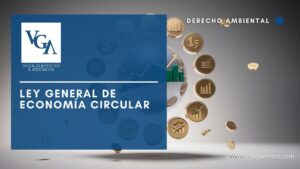By: Ana Romualdo / Marco Tena
The victory of President-elect Claudia Sheinbaum on June 2, 2024, sent shockwaves through the investment community, heightening fears that had been brewing since earlier in the year. These fears stem from President Andrés Manuel López Obrador’s (AMLO) proposed constitutional reforms introduced on February 5 in a last-ditch effort to steer Mexico towards the peace and prosperity he had promised voters five years before. Among the 20 proposed reforms, judicial reform has generated significant concern both domestically and internationally due to its potential implications.
Initially perceived as a fleeting topic, the election results underscored the importance of Mexico’s judicial reform, prompting increased investor attention. Since then, the investment climate in Mexico has been uncertain, reflected in the fluctuating value of the Mexican Peso. This article discusses the four key elements of the proposed judicial reform and its potential impact on investors.
The most controversial aspect of the reform is its goal to reshape the Supreme Court of Justice. On one hand, the reform would reduce the number of magistrates from 11 to 9 and shorten their terms from 15 to 12 years. On the other hand, it would mandate public judicial sessions, eliminate lifetime pensions for magistrates, and cap their salaries at a maximum defined by the president. Additionally, Ministers, Magistrates, and Judges would be elected through popular vote, with new elections slated for 2025 to choose the judicial power’s new members.
The reform also proposes replacing the Federal Judiciary Council with appointed members and introduces procedural changes to the justice system. Among these changes, it proposes a six-month timeframe for resolving fiscal matters and prohibits suspensions against laws in amparos and constitutional controversies.
Together, these proposals pose the risk of significant changes to the structure and functioning of the Federal Judiciary. Electing magistrates by popular vote, eliminating pensions, and reducing salaries risk politicizing the judicial system, jeopardizing impartiality, and generating investment uncertainty. Magistrates may be influenced by political agendas, affecting their perspectives and decisions and potentially undermining judicial independence and political stability.
Similarly, replacing the Federal Judiciary Council with appointees from the executive and legislative branches raises concerns about diminished transparency and legal security. The current body operates with impartiality and transparency, protecting individuals and companies. Its replacement could lead to reduced transparency and potentially unfair practices.
Even changes affecting the judicial procedure, which contain generally desired outcomes, such as expediting litigation, have the potential to be detrimental. In particular, prohibiting suspensions against laws in “amparo” and constitutional controversies could limit companies’ legal options to protect their investments against adverse litigation.
Aside from these direct implications, the very prospect of the reform, whether materialized or not, could affect international perceptions of Mexico’s governance and legal stability. For investors, whose predictable legal environment is crucial, investor anxiety is a threat worth observing, as the recent fluctuations of the peso demonstrate.
Despite these concerns, there is still room for the new president to adjust or steer away from the reform. Investors should stay informed and closely monitor legislative and political developments that may affect their investments.




